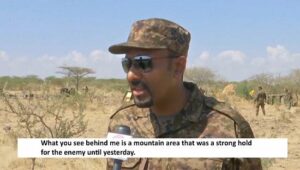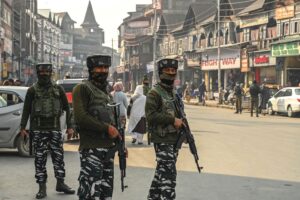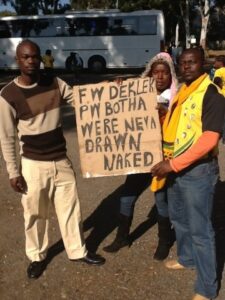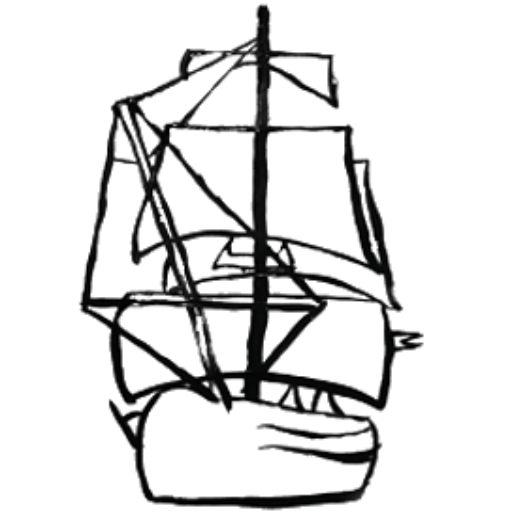Thanks to the Rastafari, Ethiopia is an inexpungable part of what we still refer to as the West Indies. Ethiopia has strengthened our soul, raised our heads high, shaped our identities, imprinted itself in the ways we love, dance, walk, talk and dress. When Walter Rodney greeted us with I man Irie, I man dread, as he did up to the week before his death on 13 June 1980 – one of those deaths that sends many scattering in search of the light – he was, through his groundings with the Rastafari of Kingston, invoking Ethiopia. The Africa in Back to Africa, for many, has meant Ethiopia. When One Love is sung by musicians around the world they are one because of Ethiopia. From base camps in the Himalayas to kibbutzes in Israel, from the far north to the far south of the Americas, from these west Indies to the east Indies, there is Ethiopia. In inspiring our politics, culture, economies, Ethiopia is even synonymous with utopia.

There is war in Ethiopia today. While that is bad enough, there are reports that since November 2020, tens of thousands have been killed. There is now talk of genocide. In a reminder of Rwanda in 1994, that took upwards of 800,000 lives in a few months, the big governments of the world, the UN, the African Union, by their own accord as media coverage is limited, are mediating with little success. In early September 2021 Jadaliyya, an independent ezine produced by the Arab Studies Institute, published “An Open Call by African Intellectuals for Urgent Action on Ethiopia”. Their open call condemns and informs the rest of the world about what is transpiring today in Ethiopia:
We condemn the fact that the conflict is affecting ever-increasing numbers of civilians—the deaths, the sexual violence, the refugee outflows, the documented hunger and unmet medical and psychosocial needs, the reports of widespread and targeted illegal detentions (especially because of ethnicity), the enforced disappearances and torture in captivity. We also condemn the destruction of hard-earned physical and metaphysical infrastructure across Tigray, as well as other regions of Ethiopia, including institutions of higher learning, houses of worship and cultural heritage. Ethiopia and its peoples have suffered enough. Ethiopia cannot afford any further destruction.
In this account, it is difficult for anyone to recognise a utopia in Ethiopia today.
Two recent newspaper reports spoke of “atrocities committed on all sides”, and “all sides in Ethiopia’s conflict have committed violations.” While going on to name the “coalition of the Ethiopian government, under prime minister Abiy Ahmed; the Amhara regional government; and the state of Eritrea, as “committing violations on a scale and nature that could credibly qualify as genocide,” it is the pervasiveness of the “both sides” argument that is worrying. We will of course recall the US President’s August 2017 comments after the neo-nazi rampage in Charlottesville killed one person and left several others injured. In Charlottesville, according to Trump, there were “fine people on both sides,” in Ethiopia, going by comments of a Former New Zealand Prime Minister and head of the UN Development Programme, a priest with the Institute for Healing of Memories, and an anti-genocide campaigner, there are apparently bad guys on both sides. What distinguishes the two sides, the good guys and the bad, we are told, is the “scale and nature” of the violence they commit. Before this “both sides” nonsense goes any further it is worth stopping for a second to see where it is coming from and where it is leading.
Elite capture, a concept theorised extensively by Olufemi Taiwo, Professor of Africana Studies at Cornell University, is helpful here. As he explains “The concept of elite capture originated in the study of developing countries to describe the way socially advantaged people tend to gain control over financial benefits meant for everyone, especially foreign aid.” When applied more generally, the term describes “how political projects can be hijacked—in principle or in effect—by the well positioned and resourced.” For example, elite capture happens when those with money and power convince you to turn your potato-ball stall into a franchise by promising you economies of scale: while your economies of scale grow your income shrinks. Similarly, elite capture is when rich countries capture and hoard vaccines then impose restrictions on countries where the virus is allowed to circulate and therefore mutate into even scarier variants of concern.
In the context of war, what is at stake is the elite capture of peace. One more example, from another part of the world, best illustrates how this capture operates. The road that interconnects the Sheikh Ul Alam International Airport and the rest of Kashmir is lined with military personnel guarding the lands that they have walled and buildings they occupy. On one of these army walls there is a sign that reads, “Peace is our belief, Even when path is through battlefield.” What is happening here is that the idea of peace as achievable through violence is being stuffed down the throats of the people of Kashmir, by the powerful Indian state, whose currency carries the picture of one of the world’s most popular proponents of non-violence.

The elite capture of peace operates in another high-level circuit of the absurd: the Nobel Peace Prize. Let us recall that the award was given to F.W. de Klerk (the FW stands for free the whites), drone-happy President Barack Obama and blood on her hands and eponymously named Centre for Peace icon, Aung San Suu Kyi – all made possible by the tremendous wealth of the arms dealer, Alfred Nobel. The image that best captures the total irony of peace in our contemporary world, however, comes from Ethiopia itself: that of its Nobel Peace prizing winning Prime minister, Abiy Ahmed, in army uniform on the battlefront directing his army. With leaders like these it is no surprise that today peace is coming from the barrel of a gun.
Speaking of leaders, the letter, bearing some sixty signatures of scholars from various academic institutions “on the continent and in the Diaspora”, with the notable absence of the West Indies, points to a further failure of leadership:
When the Organization of African Unity (OAU) was transformed into the African Union (AU) in the early 2000’s its Peace and Security Architecture was supposed to be guided by the principle of “non-indifference” and “the spirit of Pan-Africanism”. And yet when civil war erupted in Ethiopia in early Nov 2020, the old OAU principle of “non-interference” in the internal affairs of member states trumped all efforts the AU could have made to address the deteriorating situation in Ethiopia.
It is also worth pondering a little further on how this “indifference” operates with regards to the “scale and nature” of war. Whether the separation of the scale of violence and nature of the violence plays any part in the elite capture of the peace in whose name these peace laureates go to war.

And the international community? As the second article referred to above, by the ex-prime minister, the priest and the activist, explains:
the international community is divided, confused and indecisive. The [Abiy Ahmed] government has protectors at the UN security council. The African Union listened deferentially to the government’s denials and obfuscations. The main European powers have dithered. The US has toned down its condemnations, perhaps for fear of being diplomatically isolated. It also has conflicting priorities, including trying to facilitate humanitarian assistance and initiate negotiations for a ceasefire and political settlement – an agenda that can preclude calling out one party to the conflict for atrocity crimes or genocide.
Who are those protectors in the UN? Are they by chance our governments? What are we waiting for? Will the Guyanese government for example, as it did with Kashmir after the Indian government abrogated articles 370 and 35A in August 2019, join an international envoy to Tigray to declare that normalcy has returned to the region? Does the policy of indifference outlined above apply to our governments as well?
Maybe it is time we held our governments responsible for what they do on our behalf before they squander whatever remains of our reputation for standing up for the exported and oppressed – be it culturally, in sports or through the voices amplified around the world through the lives of our revolutionary thinkers. Because if we don’t, if we fail to resist the elite capture of peace, then we should be ready, when both sides come, to find ourselves, gun in hand, in the middle of a Mexican standoff.
If there is still time , then some further questions may be asked: where does this leave us with regards to the war in Ethiopia? Has our difference – after all, we are West Indians – found a convenient ally in indifference? Given our historically entangled connection, how does the idea of ‘diaspora’ work between the West Indies and Ethiopian? Is there a political responsibility that accompanies the spiritual and cultural affinity that diasporas have with their countries of origin? These are only a few of the questions that the conflict in Ethiopia compels us to confront. The Ethiopia that we know today, and that we have come to know again thanks to the Rastafari, is where some of the oldest bones of anatomically modern humans were found; it is the place from where the earliest modern humans set out for the Middle East and elsewhere; it is the only country to successfully resist the European Scramble for Africa and it is a country in whose constitution the right to secession and self-determination is enshrined. This is also Ethiopia. This history should also be kept in mind as a way of resisting the temptation to create a monolith out of Ethiopia as is often done with Africa.
Anil
Andamans, November 2021
[Interlocutors: A, GB.]

“Maybe it is time we held our governments responsible for what they do on our behalf before they squander whatever remains of our reputation for standing up for the exported and oppressed – be it culturally, in sports or through the voices amplified around the world through the lives of our revolutionary thinkers. Because if we don’t, if we fail to resist the elite capture of peace, then we should be ready. when both sides to come, to find ourselves, gun in hand, in the middle of a Mexican standoff.” This too is part of doomsday prepping. – O
Hi Oeendrila,
You have a point, though I would say that doom can’t be ignored. The doom is a part of, a beginning of the conversation, it cannot end there, and I did push ahead by raising a few questions regarding how we repeatedly get here. Though I did also have in mind the recent Rittenhouse decision in the US and its implications for forms of protest.
Since posting:
More than 50 Nobel laureates have signed a peace-dividend.org petition calling on governments to cut military spending by 2% and direct half of the saved money towards combatting pandemics, climate crisis and poverty. Of the fifty only one signatory (Tawakkol Karman, 2011, of Yemen) is a Nobel Peace Prize laureate and another, “His Holiness the Dalai Lama (Nobel Peace, 1989) has expressed appreciation and support for the initiative.”
From the outset, I concede, and am ashamed (not guilty) of valorising/fetishising ‘mama Africa’ and of succumbing to the temptation you have referred to. ‘Coming close’ to the ‘music and culture’ in certain ways meant pushing ‘it’ away.
Nevertheless, what I wanted to ask about is your reference to ‘us’ and ‘we’. Our governments/on our behalf, etc. Are ‘we’ simply ‘West Indians’ or ‘East Indians’ with differences whose crisis is ‘possible indifference’? ‘We the people of’ somewhere and everywhere are always conscious/reflective. ‘We chose’ our governments. ‘They’ fuck up. ‘We’ have to!
It has increasingly been difficult to understand who is ‘we’. Qualitatively different yet quantitatively equal. Each with ‘one’ vote. 1+1+1+1=Us?
Hi Nikhil,
The work also lies in recognizing a binarist critique of binarism; asking whether our concerns come from such critiques.
‘we’ is also lower case, the us who live and together, who push against the difficulty of understanding. It is the i&I who comes close and pushes is pushed away.
for now…